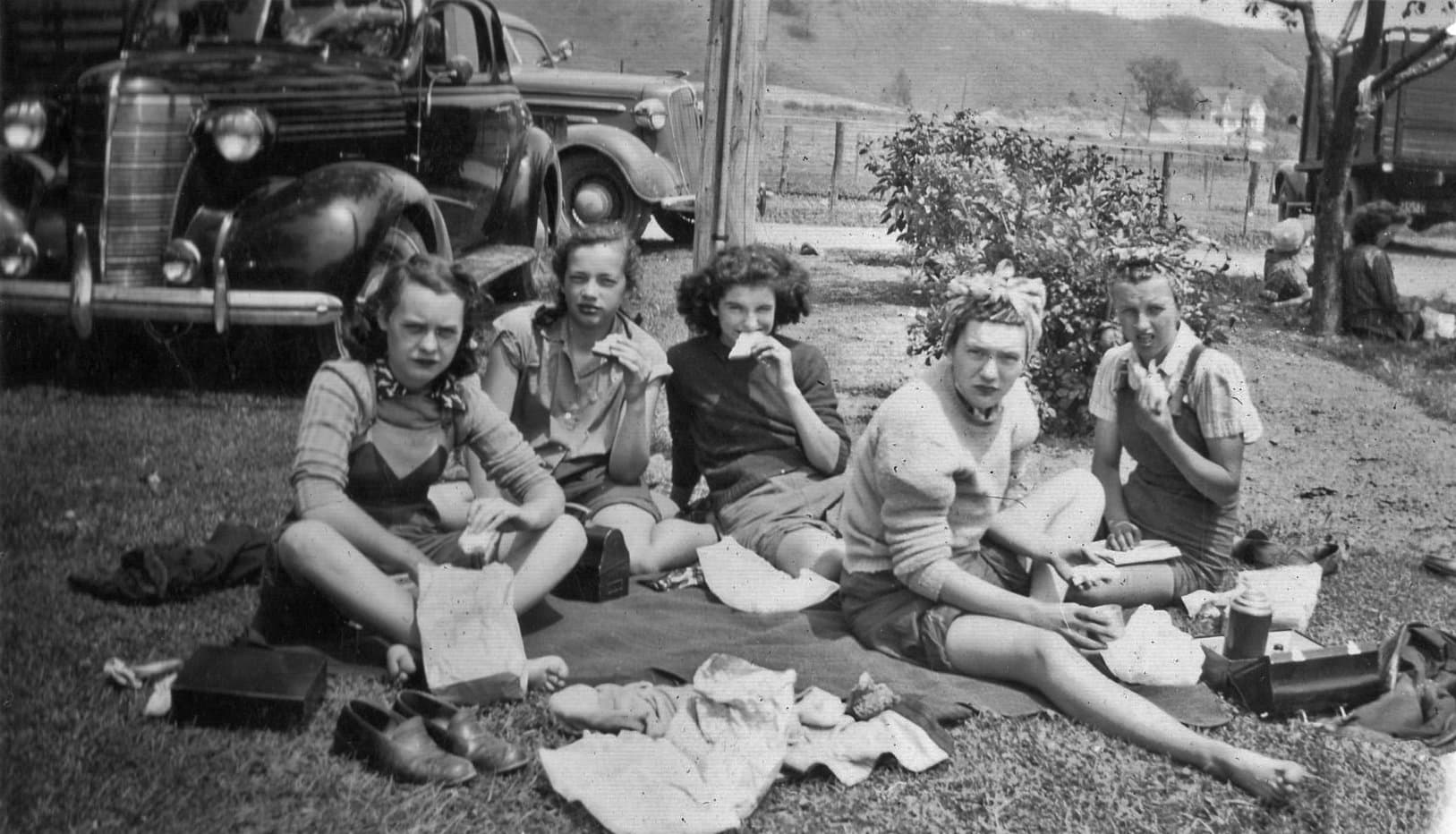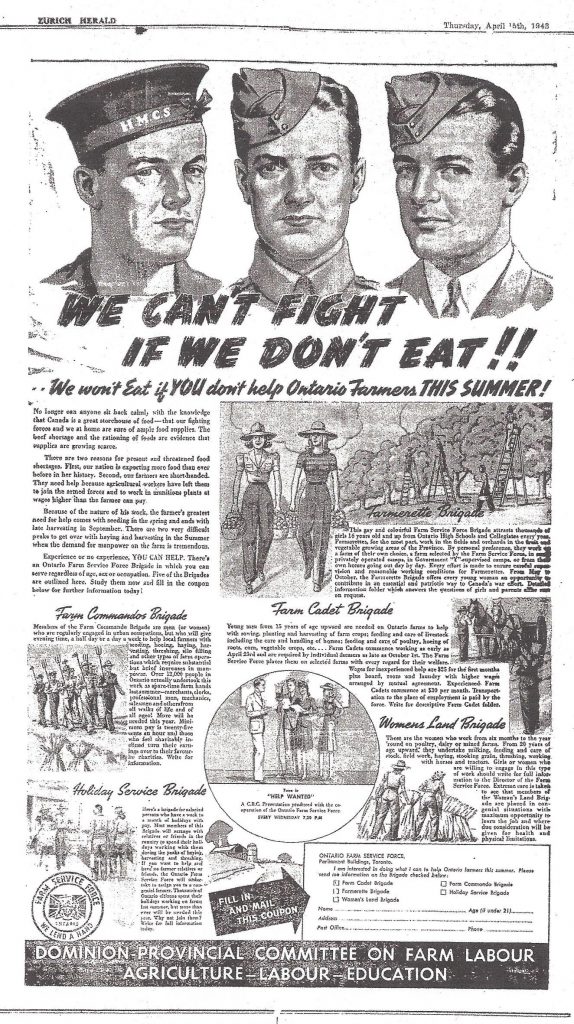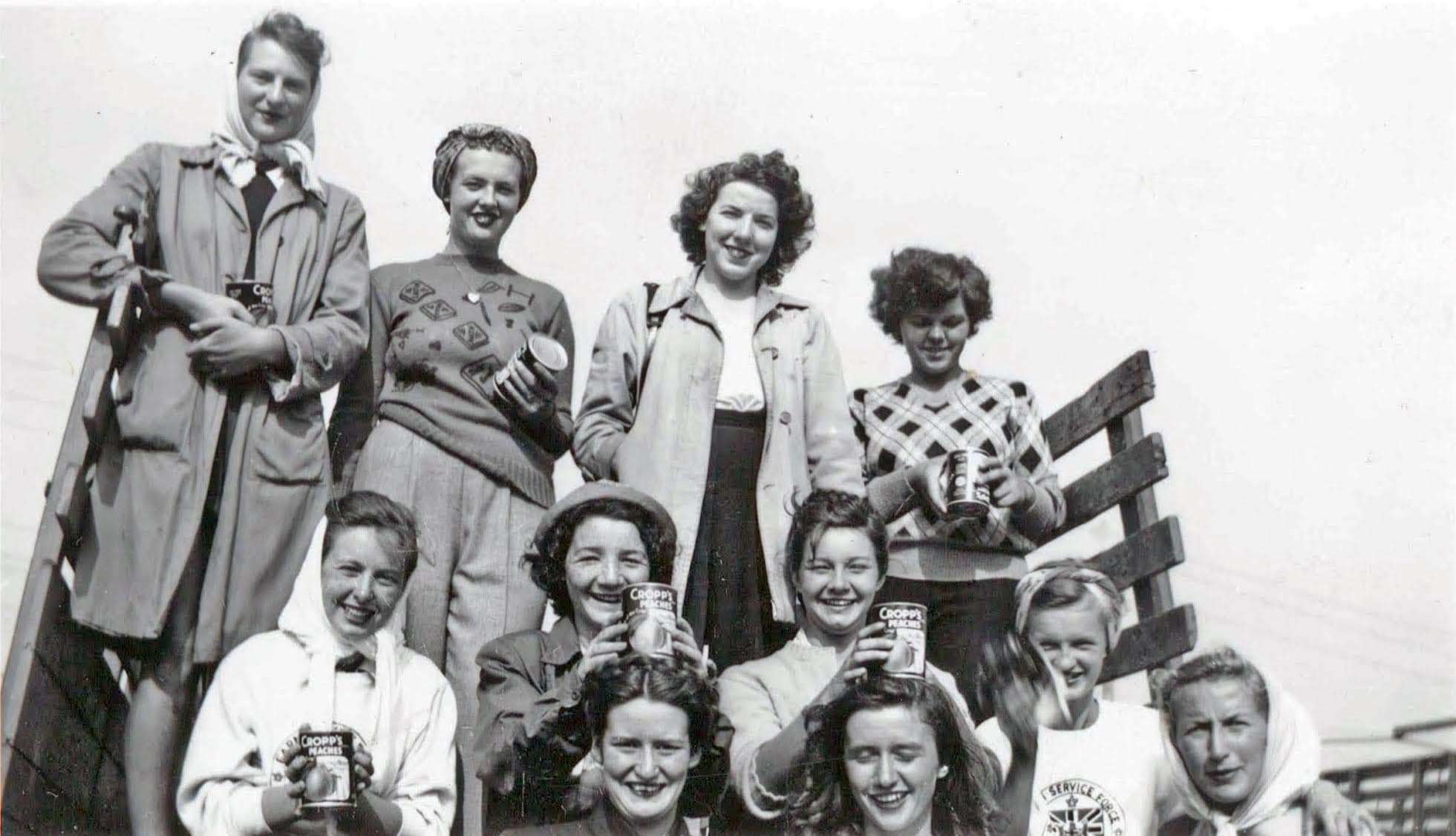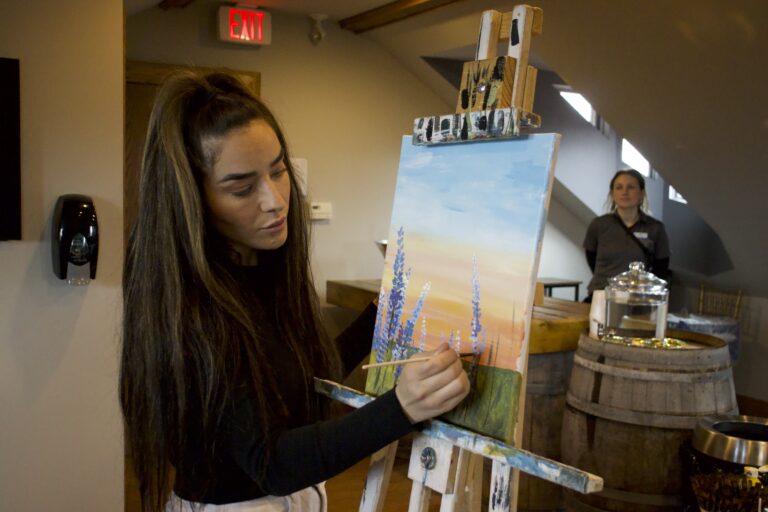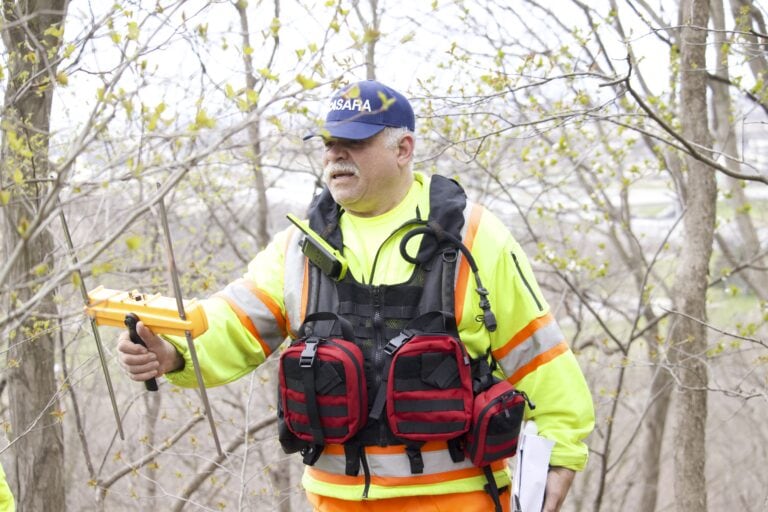An upcoming seminar at the Niagara-on-the-Lake Museum will shed light on stories of Ontario’s often-unrecognized women farmers – who stepped up when their country needed them the most.
Co-authors of “Onion Skins and Peach Fuzz: Memories of Ontario Farmerettes,” Shirleyan English and Bonnie Sitter will tell the tales of the young women who worked long days out on the farms during the Second World War, called “farmerettes” by historians.
The presentation will be on June 15 at 7:30 p.m. at the museum.
“It’s going to cover all aspects of farmerette life and why the girls, even today, still, call it the best summer of their life,” said Sitter.
Their book includes letters and experiences from southern Ontario’s forgotten farmerettes who volunteered to go live in camps and work on the farms to provide food for the population.
This is more than faraway history for English – she worked as a farmerette herself during the war.
Not only that, she was a farmerette for Sitter’s in-laws.
The two connected after Sitter came across an old photo of three farmerettes and started researching them. After finding out more, Sitter wrote an article about the farmerettes for a farming magazine called the Rural Voice in Blyth, Ont.
“The tiny two-by-two-and-a-half inch picture that could have been tossed in the garbage made me curious to find out why I had never learned about farmerettes in school,” said Sitter.
English wrote a letter to the editor after reading Sitter’s article, and the two have been working together ever since.
When thousands of men’s lives were lost in the Second World War, factories and other male-dominated workforces were left short-handed.
In 1941, the Ontario Farm Service Force formed the Farmerettes program and recruited nearly 25,000 high school students.
Advertisements geared towards women appeared saying “We Can’t Fight If We Don’t Eat!” and “We won’t eat if YOU don’t help Ontario farmers this summer!” to encourage them to sign up.
“(The book) brought a lot of joy to a lot of women that thought they were never ever going to be talking about being a farmerette anymore,” she said.
The two women will share never-before-seen photos of farmerettes, the perks of being a farmerette and the history behind them.
“They’re going to see where the girls live, they’re going to see the jobs they did, they’re going to hear about the fun they had,” said Sitter.
The farmerettes, between the ages of 16 and 18, weeded, picked and planted fruit and vegetables for upwards of 10 hours a day for 13 weeks.
“One girl that we know wrote in her story that she was 15 but her mother changed her birth certificate so she could go with her girlfriends,” Sitter said.
The farmerettes not only learned important life skills but formed long-lasting memories and friendships, said Sitter.
Though the work was hard, Sitter said, “What the girls really remember is the friendships and the fun that they had.”
Some girls went back as many as four times, she said.
The presentation will be held at the NOTL Museum at 43 Castlereagh St.
Admission is $10 and free for members.
Call 905-468-3912, or email aklassen@nhsm.ca to reserve your seats.



